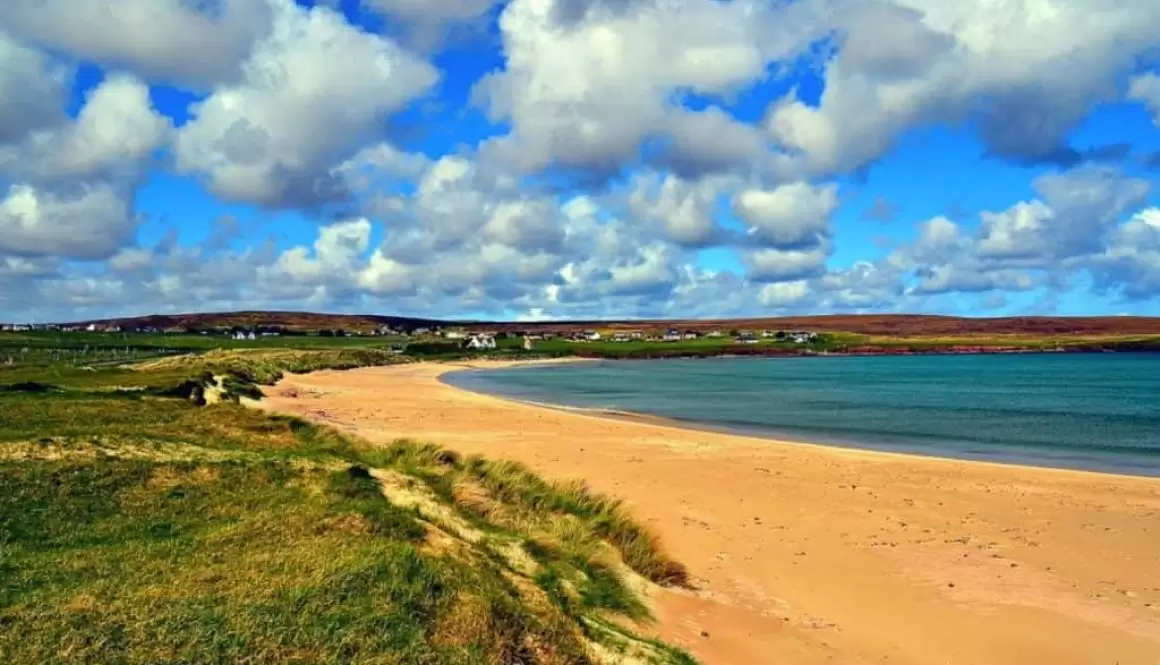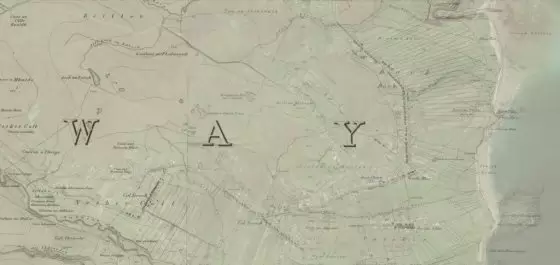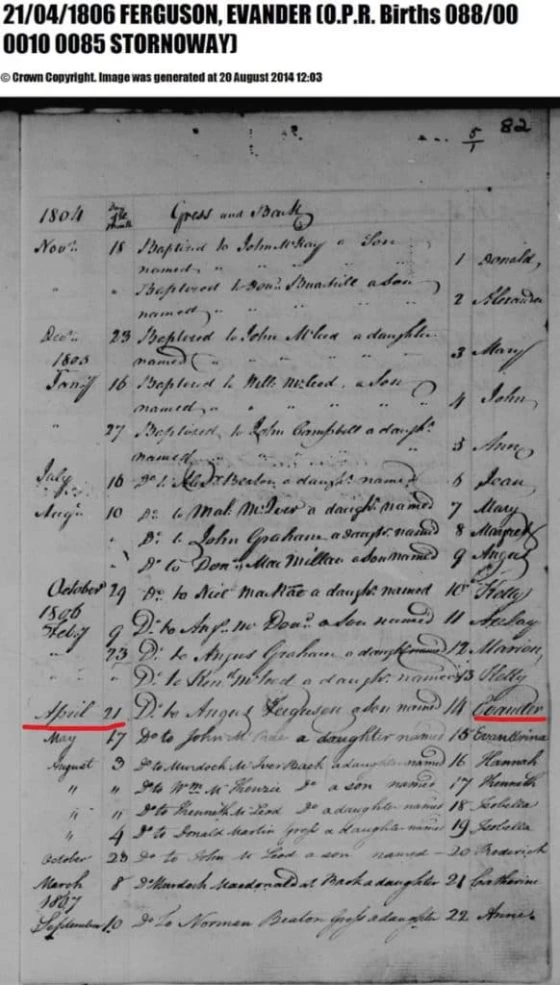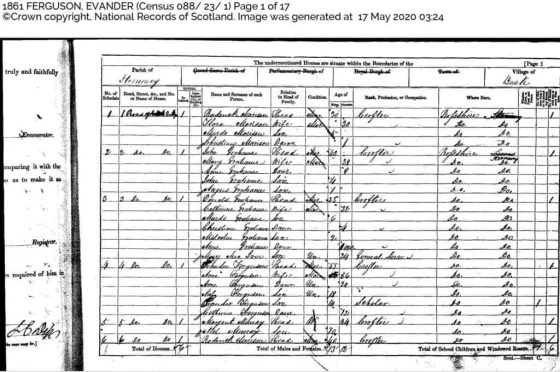Evander Ferguson & Ann Murray
Evander Ferguson and Ann Murray
Evander Ferguson
Evander Ferguson was born in 53 Back, Isle of Lewis, Scotland in 1806 and baptized on 21 April 1806. His parents were Angus Ferguson and Catherine Morrison. He died in Back on 10 November 1868.
Ann Murray
Ann Murray was born at 8 Old Back, Isle of Lewis, Scotland 1n 1804. Her parents were John Murray and Ann MacLeod.
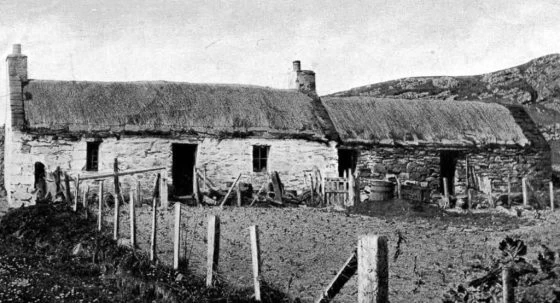
Crofting
Outside the town of Stornoway life in the rural areas was dependent on the crofting system. Each croft was an area of land approximately 6-7 acres or 2.5 hectares,. The crofts were close together in village communities.
Although the crofter did not own the land he had absolute security of tenure following the Crofters Act of 1885. He could sell the croft or will it to whomsoever he wished. But in selling the croft he could only charge the value of improvements effected during his tenure. He was usually succeeded by a member of his family.
Back 1840
The map opposite has been created using the 1840 series Ordnance Survey 6 inch to the mile map and has been laid over contemporary satellite imagery of the area.
The opacity of the top map has been reduced to enable the current satellite imagery to be visible below the map.
Crofting Life
The croft could support only one family. As a family grew to adulthood all but one had to find a livelihood elsewhere.
This drove many men and women to emigrate to distant lands such as the US, Canada, South Africa, Australia, New Zealand and to some European, countries. Between 1922 and 1929 three ocean liners left Stornoway with many emigrants to the US and Canada. The last ship which left in 1929 discharged its human cargo in the US and Canada as the great financial crash of 1929 took place.
Many of them came back home. Others found employment in many of the ships plying the Great Lakes and the St. Lawrence River. As Isles men they were well trained as seamen and were, therefore, valued.
Grazing
Each crofter had the right to graze two cows on the common grazing land round the village and to have a flock of sheep on the moorland some miles away. In the summer the common grazing was closed for six weeks in June and July. During these six weeks the cows had to be grazed on the croft or taken to the moor some distance away. On the moor each family had a very small bothie or shieling usually beside a quiet~ secluded loch.
Gathering Peat
These shielings were often in village groups. Each shieling was made of stone and earth roofed over by a large tarpaulin. As life was largely in the open air the shieling was just big enough to hold a bed, two chairs and a fireplace. Fortunately in June and July the weather was always friendly. The shieling was usually occupied by grandmother and one or two grandchildren to act as cowherds.
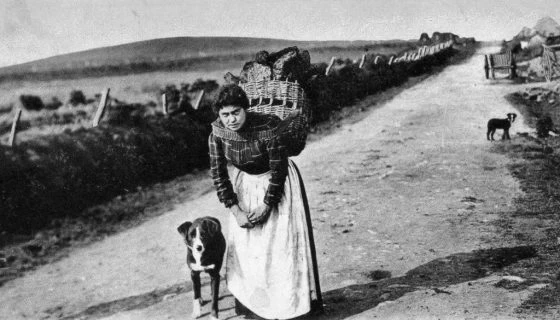
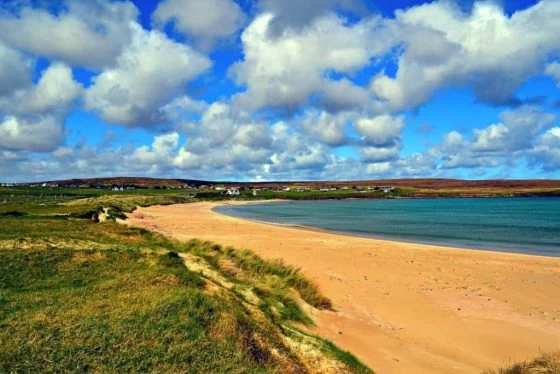
Story
The cows were allowed to roam during the day and had, therefore, to be kept under observation. Life in the open air in June and July was warm and idyllic. It is not surprising that the shieling appears frequently in Gaelic song and poetry.
The following expresses it well:
“From the lone shieling on the misty moorland, Though mountains divide us and a waste of seas, Yet still the blood is strong, the heart is highland, And we, in dreams, behold the Hebrides.”
